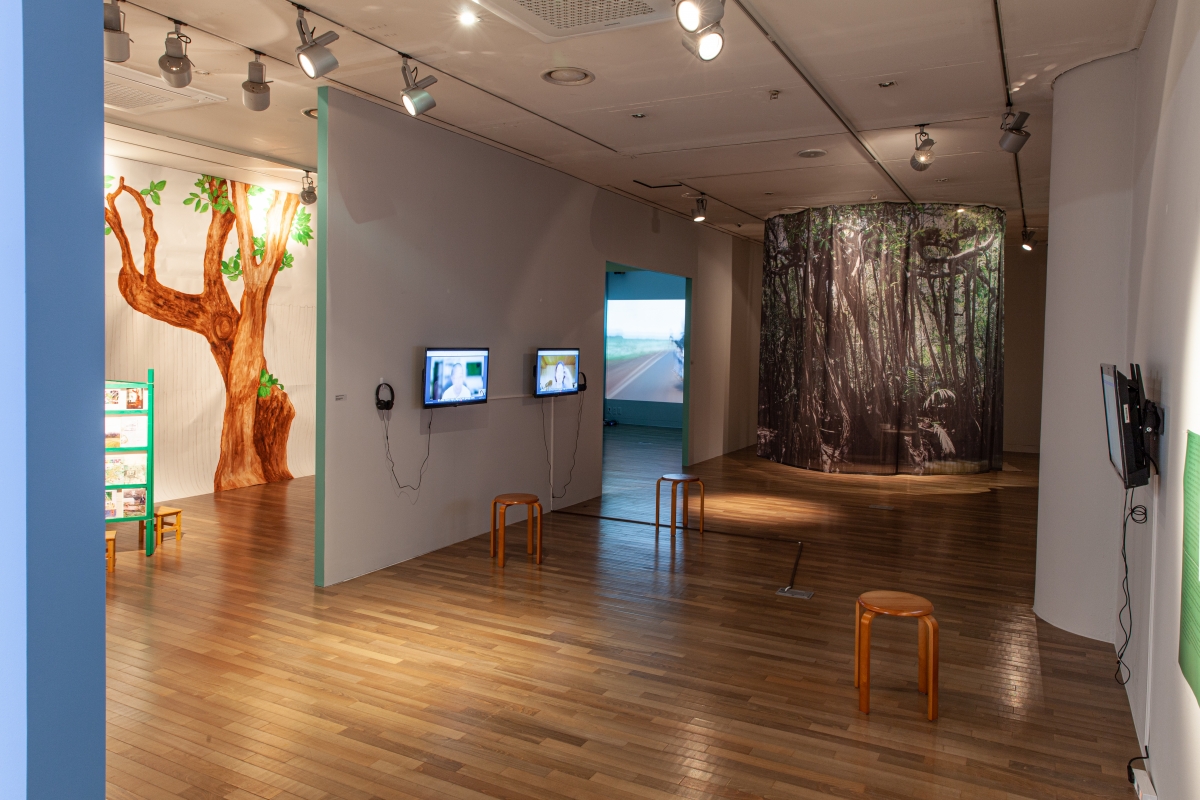SPACE February 2023 (No. 663)
 Exhibition view of ‘Disturbants of land, breath, sound: Aesthetics of Post-colonial culture’ / ⓒlistentothecity
Exhibition view of ‘Disturbants of land, breath, sound: Aesthetics of Post-colonial culture’ / ⓒlistentothecity
‘Disturbants of land, breath, sound: Aesthetics of Post-colonial culture’, an exhibition exploring the diversity and practice of local culture from the perspective of postcolonialism, was held at Coreana Museum of Art until Dec. 31. 2022. The exhibition took a close look at the practice of autonomous interpretation and creation of cultural identity and diversity by artists from countries that experienced cultural and territorial colonisation, including Korea, Hong Kong, Thailand, Indonesia, Mexico, and Brazil. Neo-postcolonical cities, which were explored in the exhibition, is a concept of colonial cities that exist after the neoliberal regime. It refers to a city whose uniqueness has been lost anew due to multinational corporations, finance, and real estate while having a historical identity severed by the imperialism of the first world. Listen to the City, the curator of the exhibition and Seoul-based explorer of urban identity presented City of Oblivion (2022), a video about the traces left by the redevelopment of Eulji-ro. Michael Leung, a Hong Kong artist and writer, proposed various activities for Wang Chau— the suburb of Hong Kong, which used to be an urban farmland producing jackfruit, but was demolished last year due to apartment redevelopment. An independent publication Zine, which offered related discussions avoiding censorship, drawings, and the performance depicting the last remaining jackfruit tree in the village were exhibited. Colectivo Amasijo, which researches the origins of crops and food in Mexico, conducted installation and research on ‘Maguey’, the raw material of Pulque, a traditional liquor that was in danger of disappearing under colonisation and dictatorship. Additionally, various attempts were made by artists who sought local culture under the context of postcolonial, leaving implications for practices against the standardisation of urban space. by Kim Jia
36




